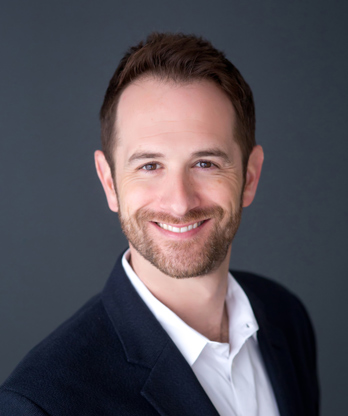Anxiety in Kids: MSU Psychology Professor Looks to Fill Research Gap
September 20, 2022 - Shelly DeJong
 Anxiety disorders are the most common mental illness in the United States, affecting adults and children. Research, support services, and intervention options are in place for many struggling people, but young kids are often left out. Psychology professor Jason Moser, Ph.D., and his team are working to fill this research gap and explore ways to help kids through this early developmental stage.
Anxiety disorders are the most common mental illness in the United States, affecting adults and children. Research, support services, and intervention options are in place for many struggling people, but young kids are often left out. Psychology professor Jason Moser, Ph.D., and his team are working to fill this research gap and explore ways to help kids through this early developmental stage.
“We’re seeing kids whose lives are being impacted by significant levels of anxiety, and there aren’t good intervention options available to them,” said Dr. Moser. “So, we took our research on how anxiety shows up in the brain and created an intervention method called Camp Kid Power.”
Funded by the National Institute of Mental Health, Camp Kid Power is in the second year of a three-year pilot multi-site study. In collaboration with the University of Michigan, Columbia University, and the University of Maryland, Camp Kid Power aims to help young children, ages four to five-years-old with significant anxiety. The camp structure includes one-on-one interactions with a counselor who works with a child individually to teach important intervention methods while having fun.
What does intervention look like for preschoolers?
Each child randomly gets assigned to one of two groups: child-directed or counselor-led. Each group includes one-on-one interactions between children and counselors. Because there has been little research on anxiety in this developmental stage, the researchers are testing which intervention style might be better, although both could yield positive results for kids.
“We are in unchartered territory because such little attention has been paid to this population,” said Dr. Moser. “This project has clearly shown an unmet need, and we hope that Camp Kid Power will shed some light on what we could offer.”
Kids meet in person for five consecutive weeks and spend one-on-one time with a trained undergraduate student, with a Camp Leader overseeing each session. They spend about 2 to 3 hours in the camp environment in total. Before and after their five-week camp, each child goes into the lab to complete behavioral assessments and have their brain signals measured through an electroencephalogram or EEG system.
“The ultimate kind of pie in the sky is that we learn that this is beneficial and is a lower cost intervention that is scalable,” said Dr. Moser. “The added benefit in recording the brain activity is that we might even understand why it works.”
The feedback from participants has largely been positive. The kids are engaged with camp, forming relationships with the counselors and fellow camp attendees, and growing throughout the experience. Parents are seeing a difference in their kids even after five weeks.
“Parents have indicated that this experience is impacting both their parenting and their children’s anxiety,” Dr. Moser said. “We’re excited to see whether that lasts over time.”
The Research & Goal
Dr. Moser’s research focuses on anxiety and anxiety-related problems across the developmental spectrum. He brings together multiple methods from neuroscience, cognitive science, psychology, and physiology to consider the whole person in his research. Understanding that anxiety is a common and normal body response in daily life, he wants to know how anxiety gets in the way of the ability to self-regulate. Dr. Moser aims to build a better understanding and a better set of interventions to help at different development stages.
Dr. Moser has always been interested in how anxiety impacts lives, but as a father, he started thinking much more about anxiety’s development and how it manifests over time. He noticed that there were often inconsistencies in the literature in his field when it came to findings in kids versus adults. For example, the relationship between anxiety and a reaction to mistakes looks fundamentally different in children than in adults. He wondered if there was a way to understand and explain it to help people across the development stages.
Early on in his work, he found that adults who struggle with anxiety tend to have a larger mistake recognition or oops signal in their brains when they make errors. Interestingly, they found that kids with anxiety showed a smaller oops response in the brain in reaction to making mistakes.
“That raised a lot of interesting questions about the development of frontal brain regions that are involved in self-control, monitoring, and detecting mistakes,” said Dr. Moser. “It might be that they haven’t had the brain development to put together the structures we need to make the oops response and then compensate.”
Traditionally, cognitive behavioral therapies have kids face their fears or work to have kids rethink their anxious thoughts. Dr. Moser is interested in a different option. He focuses on giving kids skills and games to help practice and work brain muscles to improve self-regulation and attention. In this way, they could dissipate anxiety overall. Kids could focus easier, but also be able to resist distraction from worries. Over time, kids would be less anxious.
“We're trying to help kids develop the skills needed to stay more focused on the external world,” added Dr. Moser. “Essentially, this allows them to solve the problems in front of them instead of engaging with distracting, anxious thoughts in their minds.”
Anyone interested in learning more about Camp Kid Power can visit https://cpl.psy.msu.edu/participate/kid-power-study/.

